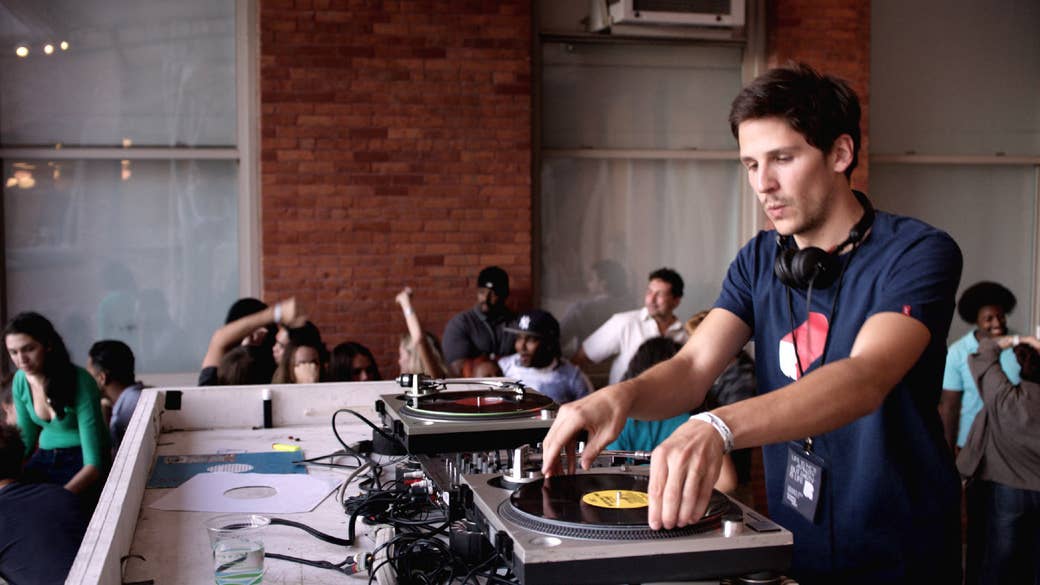
In Eden, we see Daft Punk before they're actually Daft Punk, when they're just Thomas (Vincent Lacoste) and Guy-Man (Arnaud Azoulay), two of the many kids waiting for a train that will take them out to a rave back in 1992. "They make sounds all night with weird machines," one character says of the pair, admiringly. "Really talented. Their stuff is totally new."
When the movie skips ahead a few years, it finds its way to a costume party Thomas is throwing at his parents' home, where he and Guy-Man nervously turn down the music in order to turn up one of their own tracks. The opening bars are instantly, goosebump-inducingly familiar — they're from "Da Funk," the duo's first big hit, which would go on to become one of the defining songs of the '90s. But there in that house party, they're playing it for an audience for the first time, and they survey the guests to see how they're responding. "Is it OK?" one murmurs to the other. "I’d say so," he replies.
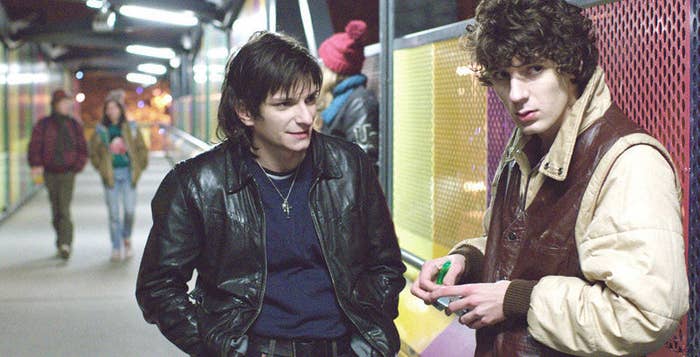
Thomas and Guy-Man only make a handful of appearances throughout Eden, more famous and more elusive each time (though there's a repeated joke about the trouble they have getting into clubs because no one recognizes them in unassuming person). Eden isn't about them and their road to worldwide ascendancy — it runs parallel for a while, and then remains pointedly earthbound while they rocket off to stardom. Their songs ("One More Time," "Within," "Veridis Quo"), at least, stick around, signposting some of the major moments in the life of the film's hero, Paul Vallée (Félix de Givry), who starts off as a teenager, becomes a minor figure in the French house music scene, and eventually finds himself a broke thirtysomething still entrenched with a genre from which everyone else has moved on.
It's fair to say that Eden is all about what happens when you don't become Daft Punk, when your passion fails to solidify into something that's at least a living, if not a source of fame and fortune. It's not a movie about failure so much as one about how some affirmation can be worse than none, at least when it comes to figuring out whether you've stayed too long at the party. This puts Eden in undervalued territory alongside the rare likes of the Coen brothers' struggling folk singer saga Inside Llewyn Davis and Amy Sherman-Palladino's short-lived aging showgirl series Bunheads, as stories of what it's like to realize you've probably already gotten as far as you're ever going to get in chasing your particular dream. And while they're not easily uplifting, these portraits are perfectly, intimately bittersweet in ways that a tale of triumph could never replicate.

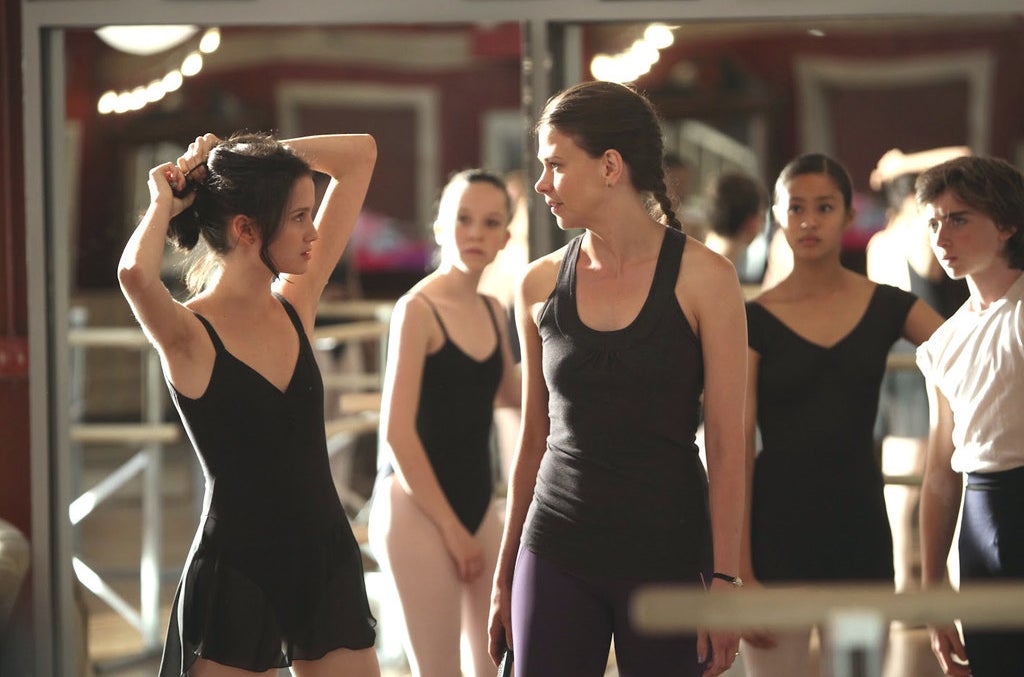
There have been plenty of narratives about making it big. Success is satisfying to witness, and how someone goes from humble beginnings to something grander is one of the basic stories we like to tell and be told, almost as much as how two people fall in love. We watch underdogs putting on a show, or writing that first song, or wowing audiences with a performance. We watch biopics about artists who rise, or rise and fall, or who flame out or die young, but who are always important. Hell, Entourage sustained itself for eight seasons and a movie on the continuing upward trajectory of Vincent Chase's Hollywood career, it's only theme, really, how wonderful it is to be rich and famous.
There are magnitudes more stories out there about characters who reach for the moon and are rewarded, even though most people who pick up a guitar or head out on an audition aren't going to get to follow the same path. Which is why Eden offers such an unshakable sort of melancholy in showing how you can love something, and you can be good at it, but that doesn't mean it's going to love you back, and at a certain point being broke and hungry feels desperate rather than like a signal of creative integrity.
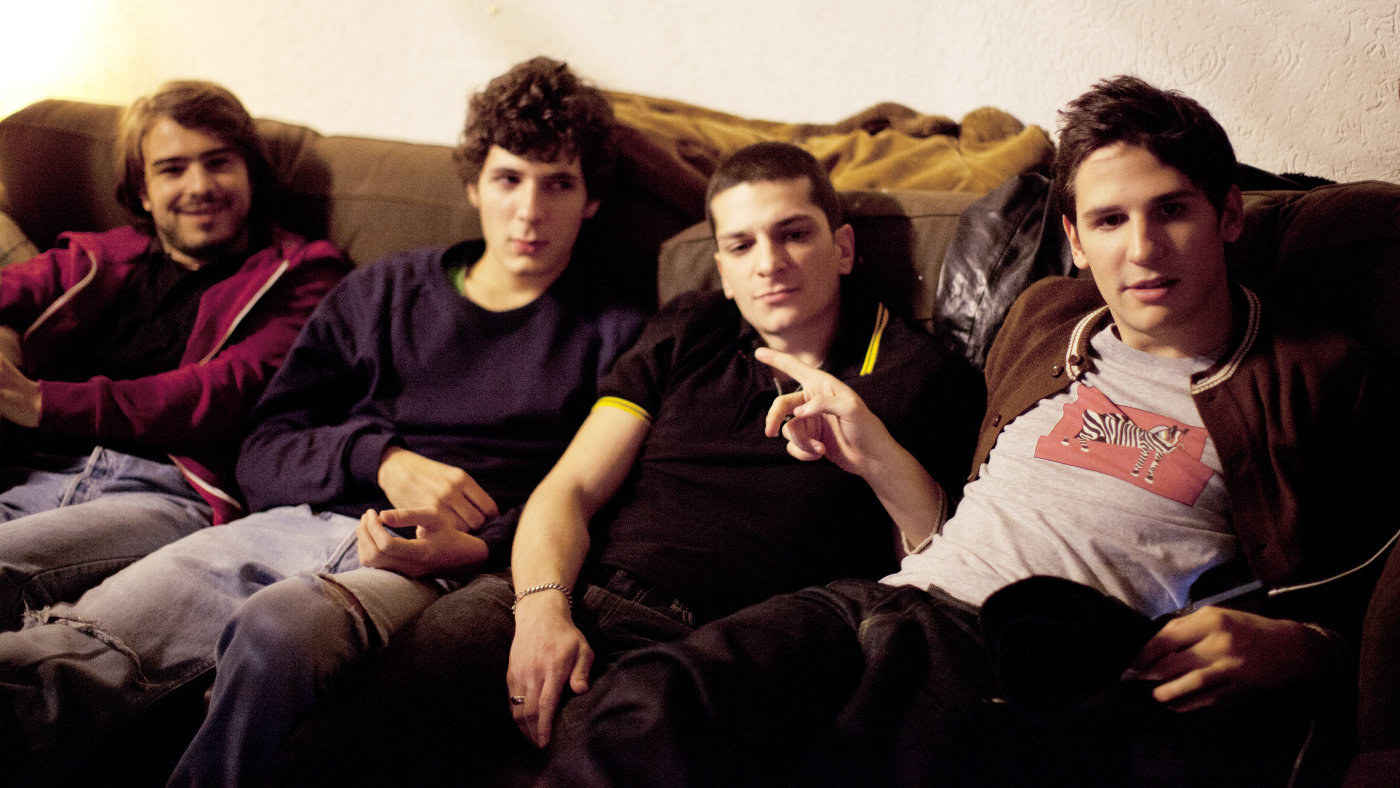
Like Inside Llewyn Davis' eponymous hero or Bunheads' Michelle Simms, Eden's main character is pretty good at what he does, which is be a DJ — he just don't have the right combination of luck, savvy, talent, and timing to go from being a local luminary to something more. Eden, which is gracefully directed by Mia Hansen-Løve (Goodbye First Love), is co-written by her brother Sven, and draws heavily from his own experiences as part of a DJ duo that, like the one in the film, was called Cheers. His stand-in, Paul, begins the film as a dimpled Parisian high schooler, then a few years pass by and he and his friend are launching a weekly party at a local club, then a few more pass and it's one of the hottest nights in town. At the height of his career, he travels to New York to DJ at Warm Up at PS1, standing above a packed house, having drinks by rooftop pools, and jetting off to Chicago for a meeting.
Llewyn Davis was stuck in a wintery purgatory of never quite quitting the folk music scene — trapped in a Möbius loop of friends' sofas and last-gasp gigs at the Gaslight that kept him hovering just a few inches above rock bottom. Michelle Simms had been spat out of the end of a dwindling dance career into life in a small California town where she floundered while trying to figure out what non-showbiz adulthood looked like, haunted by panic dreams of nightmarish auditions. For Paul, what's terrifying is how time seems to keep slipping by him while he's always just on the verge of breaking through, as he goes from 20-year-old wunderkind to regular striver to drunk guy being carried home by friends, responding to a neighborly chiding of "kids today" with "I'm 34!"
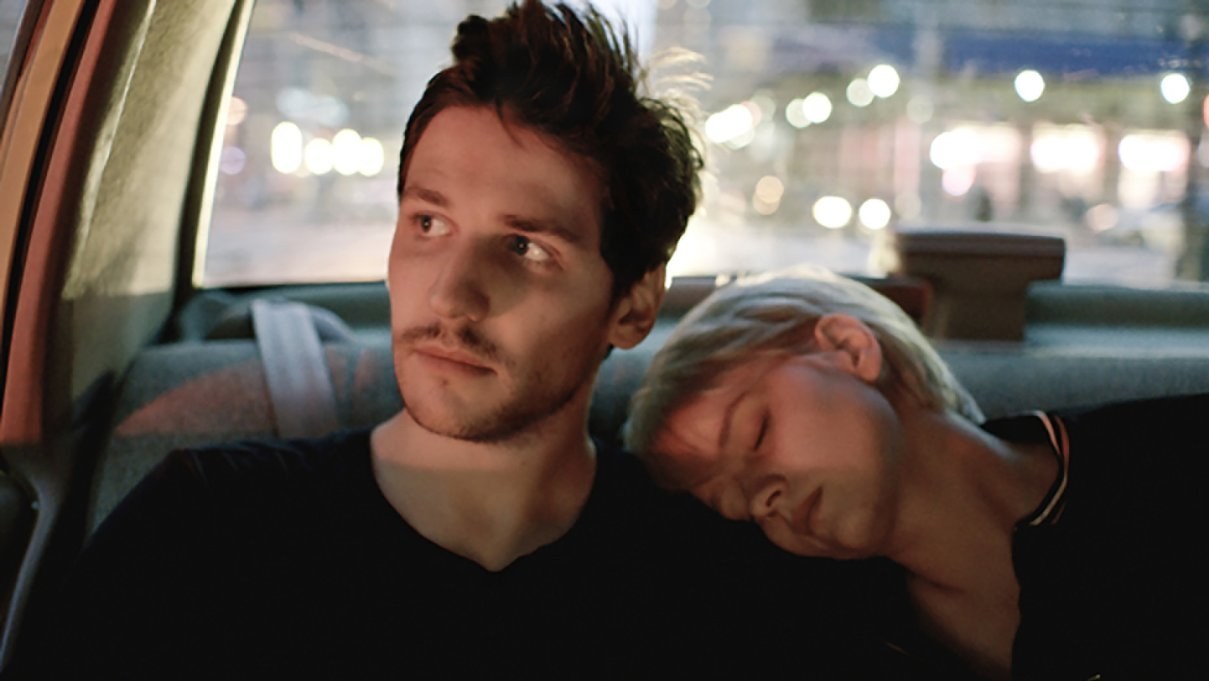
In Eden, girls (a visiting American played by Greta Gerwig, a pal turned lover played by Pauline Etienne, a calculating type played by Laura Smet) come and go, but Paul is never committed or stable or successful enough for any of them to want to stick around. Like Llewyn Davis, Paul impregnates a woman who chooses abortion over entertaining any thought about him as a co-parent. He borrows money from his exasperated mother (Arsinée Khanjian), who's upset that he's let college fall by the wayside, while he's sure wealth is around the corner. Years later, he's still doing the same thing, because too many comped fans and friends come to his weekly party, and Cheers isn't willing to switch up its sound to chase new crowds. One of his exes is married and expecting, while another has two children. And one of his friends is dead. Paul's just the same, a fact emphasized by de Givry's face, which the movie doesn't bother to add years to in any way, even as it spans a decade and more.
Most of us don't become famous DJs, or rock stars, or A-list actors, but letting go of or downsizing these goals is the opposite of a story — it's the absence of forward motion. Eden and Inside Llewyn Davis and, to a lesser extent, Bunheads (which started with an impulsive wedding and abrupt widowing) are as shaped by the things that don't happen to their protagonists as the things that do, but they're complicated rather than crushing because they're still filled with reverence for whatever it is that their characters fell for in the first place. Bunheads had its whimsical dance numbers, and Inside Llewyn Davis had songs that were heartfelt and songs that were for selling out, culminating in its main character taking a beating while in the background Bob Dylan, the movie's Daft Punk equivalent, took the stage.
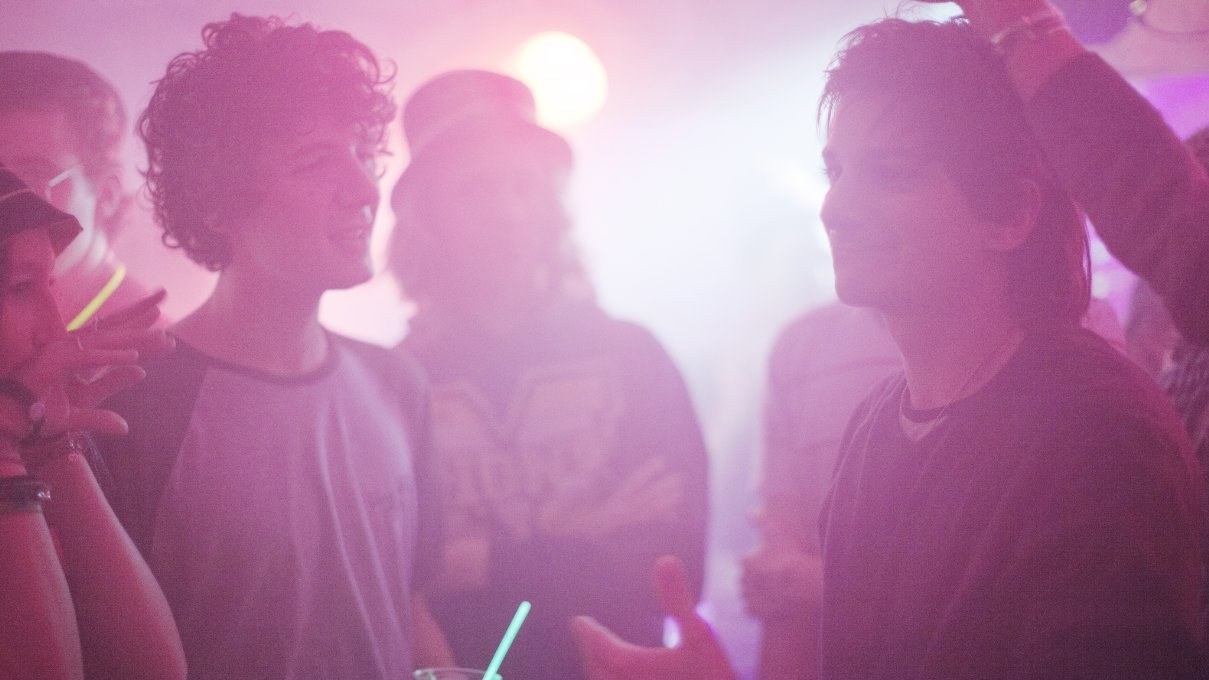
Eden never loses touch with its sense of bliss, even as its hero loses his momentum — it burbles with rapture in scenes in which its characters walk home in the morning after a long night out, or as the camera pans over a crowd of dancers singing along to the track the DJ's playing. In endearingly earnest and pretentious music geek fashion, Paul describes a song he likes as existing "between euphoria and melancholia," which is the balance the movie he's in strikes as well, as interested in joy as it is in loss. Which may be the best thing these stories of not making it bring to the table — a reminder in the age of universal urgings of anything being possible that it's OK to keep loving something while letting go of it as a grand ambition, that you can pick yourself up afterward and find something new.
